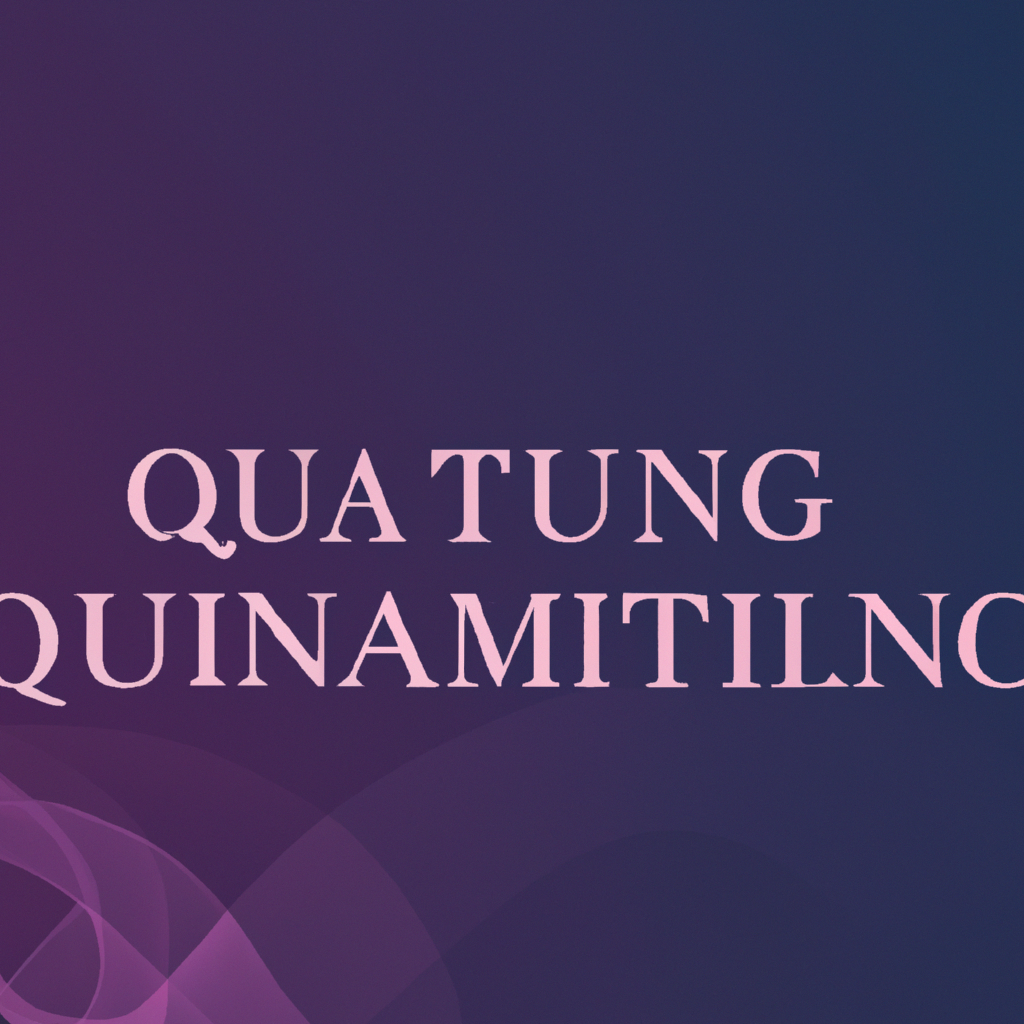Understanding the Principles of Quantum Computing
Table of Contents
Understanding the Principles of Quantum Computing
# Introduction:
The field of computing has witnessed remarkable advancements over the years, leading to the development of powerful machines and algorithms. However, as the demand for faster and more efficient computing systems grows, traditional computers are reaching their limits. This has paved the way for the exploration of alternative computing paradigms, one of which is quantum computing. Quantum computing harnesses the principles of quantum mechanics to perform computations that are exponentially faster than classical computers. In this article, we will delve into the principles of quantum computing, exploring its fundamental concepts, potential applications, and the challenges it faces.
# Quantum Mechanics and Superposition:
To understand quantum computing, it is crucial to grasp the principles of quantum mechanics. Classical computers store and process information using bits, which can represent either a 0 or a 1. Quantum computers, on the other hand, utilize quantum bits, or qubits, which can exist in a superposition of both 0 and 1 states simultaneously. This concept of superposition is at the heart of quantum computing and allows for parallel processing of multiple states.
# Entanglement and Quantum Gates:
Another key principle in quantum computing is entanglement. Entanglement refers to the phenomenon where two or more qubits become interdependent, regardless of the distance between them. When qubits are entangled, the state of one qubit instantly affects the state of another, leading to a remarkable level of correlation. This property enables quantum computers to perform computations that are not feasible with classical computers.
Quantum gates are analogous to classical logic gates in traditional computing, but they operate on qubits instead of bits. Quantum gates manipulate the state of qubits, allowing for the execution of quantum algorithms. Some commonly used quantum gates include the Hadamard gate, which creates superposition, and the Pauli-X gate, which performs a bit-flip operation. These gates form the building blocks of quantum circuits and enable the execution of complex computations.
# Quantum Algorithms and Shor’s Algorithm:
Quantum algorithms are specifically designed to leverage the unique properties of quantum computers. One of the most famous quantum algorithms is Shor’s algorithm, which solves the factorization problem exponentially faster than classical algorithms. Factoring large numbers into their prime components is a fundamental challenge in cryptography, and Shor’s algorithm poses a significant threat to current encryption methods.
Shor’s algorithm utilizes quantum Fourier transform and modular exponentiation to efficiently find the prime factors of a large number. The classical counterparts of these algorithms have a computational complexity that grows exponentially with the size of the number, making factorization of large numbers impractical. However, Shor’s algorithm, when executed on a quantum computer, can solve this problem in polynomial time, revolutionizing the field of cryptography.
# Potential Applications of Quantum Computing:
Quantum computing holds immense promise for various fields, including cryptography, optimization problems, drug discovery, and machine learning. As mentioned earlier, Shor’s algorithm can break current encryption methods, which has prompted researchers to develop post-quantum cryptography techniques that are resistant to quantum attacks. These techniques aim to ensure the security of sensitive information in a post-quantum computing era.
Optimization problems, such as the traveling salesman problem and portfolio optimization, are notoriously challenging for classical computers. Quantum computing has the potential to find optimal solutions to such problems much faster, enabling more efficient resource allocation, route planning, and financial portfolio management.
In drug discovery, quantum computing can simulate molecular interactions accurately, leading to the discovery of new drugs and more efficient drug optimization. By modeling complex molecular systems, quantum computers can significantly reduce the time and cost required for drug development.
Machine learning, a rapidly growing field, can also benefit from quantum computing. Quantum machine learning algorithms have the potential to process large datasets and extract meaningful patterns faster than classical algorithms. This could lead to advancements in various areas, such as image recognition, natural language processing, and recommendation systems.
# Challenges and Limitations:
While quantum computing holds great promise, there are numerous challenges and limitations that need to be addressed before it becomes a practical reality. One of the primary challenges is maintaining the delicate quantum states of qubits. Qubits are highly susceptible to noise and decoherence, which can cause errors in computations. Researchers are actively exploring error-correction techniques and developing more stable qubits to mitigate this challenge.
Another limitation is the scalability of quantum systems. Building a quantum computer with a large number of qubits is a formidable task due to the intricate nature of quantum systems. Currently, quantum computers with a few dozen qubits are available, but achieving the hundreds or thousands of qubits required for practical applications remains a significant engineering challenge.
Furthermore, quantum algorithms are not universally superior to classical algorithms. While Shor’s algorithm showcases the potential for exponential speedup, not all problems can be solved efficiently using quantum algorithms. Identifying and developing quantum algorithms that can outperform classical algorithms for a wide range of problems is an ongoing research area.
# Conclusion:
Quantum computing holds the promise of revolutionizing the field of computation by solving complex problems exponentially faster than classical computers. The principles of quantum mechanics, including superposition and entanglement, enable quantum computers to process information in ways that were previously unimaginable. The potential applications of quantum computing span various domains, ranging from cryptography to drug discovery and machine learning. However, significant challenges and limitations need to be overcome before quantum computing becomes a practical reality. Continued research and development in quantum hardware, error correction techniques, and quantum algorithms will pave the way for the future of computing. As we unravel the mysteries of quantum mechanics, the realm of quantum computing beckons with immense possibilities.
# Conclusion
That its folks! Thank you for following up until here, and if you have any question or just want to chat, send me a message on GitHub of this project or an email. Am I doing it right?
https://github.com/lbenicio.github.io

